Good morning everyone and thanks for invitation to the Karpacz Economic Forum, dedicated this year to artificial intelligence and the youth leadership of the future.
An event that for over three decades has brought together Heads of State and Government, entrepreneurs, illustrious minds, journalists and writers in Poland for what has been called the most important forum in Central and Eastern Europe.
Today's panel "European Battle of Ideas" allows us to question the present with a watchful look to the future.
The battle of ideas in Europe saw a new chapter last June, in a geopolitical chessboard in constant and unpredictable change.
In the 2024 European elections, the conservative, sovereignist, identitarian forces of the right wing in Brussels saw a clear growth in consensus.
Although the numerous internal ideological differences, the forces of the right have been primatist in France with the RN, in Italy with Fratelli d'Italia, in Holland with the PVV, in the Czech Republic between Babis and Fiala's ODS, in Germany with the AfD, in Austria with the FPO, in ultra-progressive and socialist Scandinavia and in Poland where the PIS resists.
How then do we explain the fact that the supranational institutions of Brussels have changed the frameworks of consensus but not the faces of those who govern them?
In Italy there is a great masterpiece of the cinema of the 1960, based on the most famous novel by the Sicilian writer Tomasi Di Lampedusa “The Leopard”. A movie interpreted by a great Alain Delon who we remember as a masterful interpreter but also guardian of a traditional and conservative right-wing thought.
"The Leopard", still today defined as the metaphorical novel of conservatism, tells the meeting and clash of worlds and civilizations at the time of Italian unification and has gone down in history for a famous phrase of its author: "If we want everything to remain as it is, everything must change."
A phrase that would be perfect to describe the alternation of a second mandate of the European Commission led by Ursula Von Der Leyen, in the name of "changing everything to change nothing."
The Ursula majority has made a macroscopic mistake in the face of the geopolitical challenges of its present: it has alienated the possible creation of a demos, a European people.
If the unity of the Union lies in the uniqueness of its member states, the policies of the last Von Der Leyen mandate have betrayed the fundamental premise that the Union is "united in diversity".
The Ursula commission betrayed this diversity when she isolated Hungary and Poland, when she spoke of useful tools to correct the vote in the event of a victory of Meloni or Le Pen in France and Italy.
It betrayed this diversity when it imposed the reckless policies of the Green Deal among its diktats or when it did not realize that uncontrolled immigration would open violent rifts in the coexistence between peoples and cultures on the continent.
Among these discrepancies and hypocrisies, the union has chosen diktats and has forgotten what the true values of European culture are: pluralism, democracy, honour and progress, the one mediated by common sense.
To understand the sphere of transactional and pan-European debate on which the European battle of ideas is based, we can resort to 5 fundamental pillars:
1) History: there can be no progress or future without the commitment given by a recognition of a common history. Talking about freedom in this place, in the days when 85 years ago Poland fought heroically against the barbarity of its invaders should unite and make us proud. Today, history divides and the United States has been a pioneer of woke culture and cancel culture as well as its export to Europe. Books are rewritten, characters erased, heroes brutalized, classical culture becomes imperialist and slave-owning and the West is the harbinger of all faults. There is no future in the oblivion of tradition and in the lack of pride in one's symbols and tradition, without any exception.
2) Freedom: today political correctness and the hypocrisies of woke culture have overturned the paradigms of freedom. Before, it was the progressives who were the defenders of free speech, today it is the right. For the global liberal left, you are alienated from any discourse, notoriety, apex position if you expresses oneself in a way that is antithetical to the dominant thought. The freedom of the moderns, the one of which Constant spoke (always in relation to the real freedom of the ancients) has become pure massification, despotism of minorities that have become noisy majorities from a dialectical and cultural point of view.
3) Religion: There can be no secularism, and the almost dogmatic rejection of the symbolism of the Catholic religion is incomprehensible if Belgium, France, the United Kingdom and Scandinavia have entire neighborhoods in the hands of the inflexible sharia, Islamic law. Immigration and openness to different cultures should never be accompanied by a renunciation of one's own values and traditions. We must not retreat where others advance.
4) Politics: In the battle of current ideas in the EU, political opponents are often portrayed as "enemies". The first step towards political violence is to disqualify opponents, to oppose them not only with the tools of democracy but also with extra-parliamentary methods. The attacks on Shinzo Abe, Robert Fico and Donald Trump are the poisoned fruit of a progressive narrative that assimilates anyone who does not conform to the single thought as dangerous fascists and extremists
5) Ideals: in a political era of profound massification and depersonalization, ideals seem to have faded, yet they play a fundamental role in cementing distances in the political debate. Identity, on which ideals themselves are based, is both what unites us and what distinguishes us. In the current political arena, many ideals are celebrated as the absolute and inevitable last step towards the common good. This ideological collectivism has infected the public debate, transforming the messages of progressives into messianic plans. It is no coincidence that the road to hell is often paved with good intentions.
These 5 pillars summarize what are the current cleavages or fractures in the pan-European public debate. Divisions that are common to all the internal fronts of the countries in the clash between conservatives and progressives.
Europe is not and will never be the gray frame of the Brussels offices. As former Prime Minister Mateusz Morawiecki perfectly stated in his splendid speech in Heidelberg.
During his government, Italian geopolitical analysts even spoke of "Imperial Poland" for the renewed dynamism on the continent of the spearhead of European Atlanticism, distinguished by strong support for NATO, opposition to Russia's violent imperialism and in the reception of millions of Ukrainian refugees.
A government that has been targeted by the Brussels elites with criticism of the rule of law rather than praised for its geopolitical centrality and reception policies.
Hypocrisies that have proved to be even more serious in the period of Tusk's deep spoil system, never criticized by Brussels.
Returning to the Heidelberg speech, Morawiecki reiterates what should be the mission of all European right-wingers: to oppose a federalization that has damaged the uniqueness of the Union and its necessary differences.
What was once the Iron Curtain collapsed with the implosion of communism, but the "End of History" theorized by Francis Fukuyama betrayed its fundamental premises.
The myth of progress in Europe has slowly turned into violent messianism, pushing peoples and nations to reconsider their history, their culture and their fundamental prerogatives, often erased by woke culture, by the mainstream narrative of political correctness, which has become a fundamental and indispensable weapon of progressive politics.
A nation is based on well-defined and inalienable components, according to one of the most important authors of the French tradition, Ernst Renan.
The States must be masters of the Treaties and the Treaty must respect the principles of subsidiarity.
Adam Asnyk, the great Polish poet, once said: "Have contempt for triumphant vainglory and do not be proud of always being inferior."
Exactly twenty years have passed since the great enlargement of the Union to Eastern Europe and twenty years since the birth of Eurorealism thanks to the Czech manifesto of intellectuals and former Prime Minister Klaus.
Starting from respect for the 5 pillars I have talked about, it is necessary to think of a European Union that treasures these words and returns to being a political giant.
A political giant that feeds on the culture and greatness of the giants of thought and action on the continent and that sees in the syncretism between Western and Eastern Europe the key to this cooperation.
Only in this way conservatism (I extended this word to anyone who wants to be the custodian of this millenary history) wil break the violent and hypocritical yoke of a progressivism that has become furious messianism.
Read also
Law and Justice and the Importance of Poland's Historical Memory
On July 31, 2004, the Museum of the Uprising was inaugurated in Warsaw, decades after its establishment and years of work for its construction.
Alarico Lazzaro
Nawrocki's existential victory revives the Polish right-wing
These have been difficult years for the Polish right-wing. After returning to the center of the geopolitical chessboard thanks to the dynamism of the Morawiecki government in times of war on the borders of Eastern Europe, Donald Tusk's progressive coalition had prevailed in the October 2023 elections, beginning a progressive process of demolition of the institutional structures cemented by the Law and Justice party over the years.
Alarico Lazzaro
Italy and Libya: a century-long relationship in the great game of the Mediterranean
On November 26, 1911 in Barga, the poet Giovanni Pascoli delivered a speech destined to remain in the annals of Italian history.



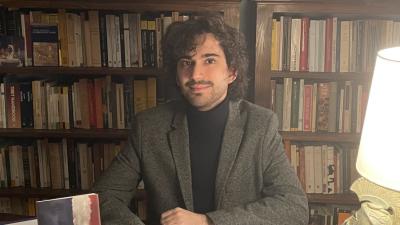

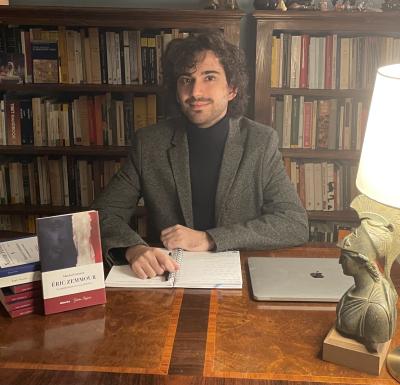
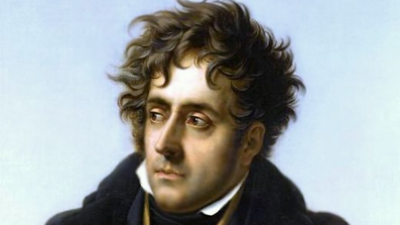

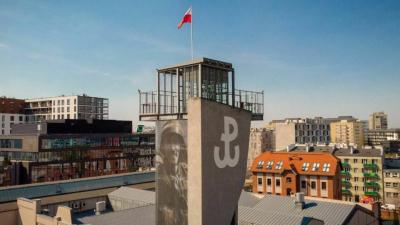

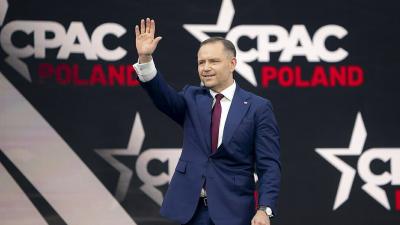

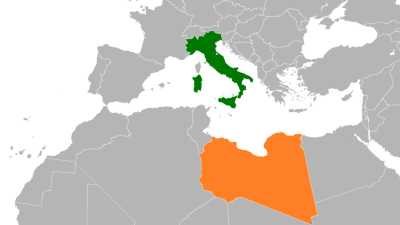

Comments (0)